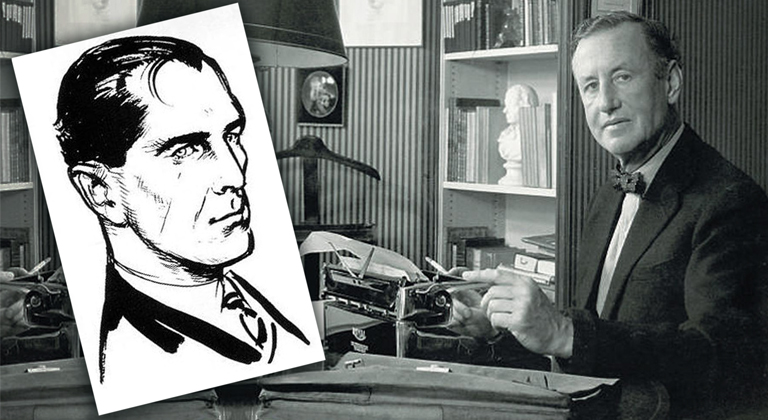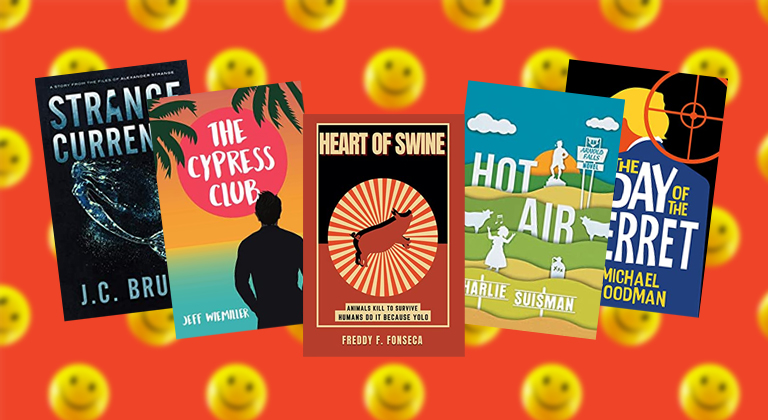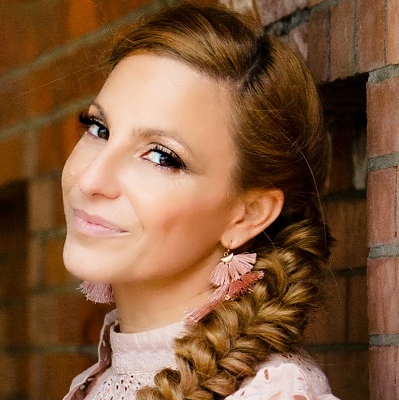Key questions to help you structure your Story
By: Ginger | Posted on April 29, 2022
Whenever I’m faced with a new idea or concept, especially one that involves multiple steps or any sort of complexity, I find that I can grasp it far more readily if a real world example is used to explain or break it down. Dan Harmon’s story circle is a great plotting tool, and can absolutely help structure your story, but only if you really understand how to use it. Ginger first talked about that tool on this blog a couple of years ago, and since then he’s come up with a list of his own questions that drill into the concept even further. Today, he’s not only sharing those questions with us, but also applying them to a very familiar and popular example as a way to make the entire thing much easier to understand. A couple of years ago, I wrote a post about the Story Circle – a… Read More >
How to Tell a Story
By: Ginger | Posted on March 11, 2022
Knowing how to tell a story is one of the key elements to being an author, but effective storytelling is more than just having a strong grasp of the language and a story you want to tell. If two writers were given the same story to write, told the same key details and given the same list of characters, they would both end up with very different books. And regardless of how great the actual story they were given was, there is no guarantee that both, or even one, of the resulting books would be bestsellers. Whether you’re writing a short story or a novel, you need to weave an engaging tale that takes your readers on a journey, keeping them hooked right through until the very last page. How you do that is the tricky part, but Ginger is here with the secret of how to do just that…. Read More >
What can Ian Fleming teach us about writing?
By: Ginger | Posted on November 19, 2021
I don’t think it’s possible to be a great author without also being an avid reader, first. In fact, while it’s often said that writing daily is the most essential habit an author should develop in order to improve their craft, I think just as important is reading as much and as often as possible. Both of those things are essential ingredients to being a successful storyteller, and there’s no better example of that than Ian Fleming, creator of the iconic character James Bond. There is a lot of benefit in studying authors like Fleming, and as someone who has done just that, Ginger is happy to share what he’s learned. The 25th James Bond movie, No Time To Die, has hit theaters across the world. Some have hailed it as the “savior of cinema” for finally getting people to return to the movie theater after over a year… Read More >
Give Yourself Permission to Fail
By: Nate | Posted on October 8, 2021
There are a lot of famous sayings and quotes about success and failure, but my favorite is one that I find myself repeating to my own kids fairly often. I don’t know the exact wording or who said it first, but I usually phrase it as “you only truly fail by not trying at all.” I don’t know if it’s a product of how competitive a society we all live in these days, but a lot of us (not just kids) have a fear of failure that is often more damaging than failure itself. I doubt there is much success that isn’t built upon a sea of past failures, because there is very little in life that we are born knowing how to do. Humans learn through trial and error, and so it should be expected that we aren’t going to get something exactly right the first (or even second,… Read More >
Eliminating blank page guilt – part 2
By: Ginger | Posted on July 30, 2021
As Ginger noted last week in the first part of this article, writing isn’t just the act of physically transferring words to paper. After all, before we can even start on that we first have to craft those scenes and characters in our heads. That’s why it’s just as important to sometimes relax the pressure we have with regards to hitting arbitrary word counts and instead allow ourselves to live and experience the world, as that is what we all use as inspiration for our stories. Last week, we broke rank and the golden rule of ‘write every day’ and suggested that it was okay to give yourself permission to embrace the blank page until a book was ‘ready.’ Now, that’s all well and good – but what happens when the book is ‘done’ in your head. What are some healthy ways to get back into the swing of… Read More >
Eliminating blank page guilt – part 1
By: Ginger | Posted on July 23, 2021
The writing process is more than simply typing words onto a paper and coming up with a masterpiece. Well, unless you happen to have infinite monkeys with infinite typewriters… but for those of us that don’t, it’s important to remember that in order to put those words onto the paper in the first place, you first have to think them up. You have to mentally plan your story, breathe life into your characters, design your world – most of which initially takes place inside your head. Many non-authors don’t understand that there is more to writing than physically adding new words to your story, but as Ginger explains below, those other things are just as important. There have been so many blog posts about the importance of writing every day that we made a conscious decision to chill on those for a while (although I still maintain that writing… Read More >
Can authors use song lyrics in their books?
By: Ginger | Posted on July 2, 2021
Unlike traditionally published authors, self-publishers don’t have the benefit of a design department to create their covers, a marketing department to handle their advertising, or a legal team to tell them what they can and cannot do. Some of these things are easier to manage than others, but usually the legal questions are the thorniest. We’ve actually covered a few of these in the past, at least in broad strokes, but this time we’re drilling in a bit to discuss a more specific question. That is, whether or not an author can use someone else’s song lyrics in their own book. If it’s something you’ve ever considered yourself, it’s vital to understand how to do it properly because if you don’t, even just a dozen of somebody else’s words interspersed within 70,000 of your own could end up really costing you. Working in self-publishing, it’s often crazy how much… Read More >
Every Word You Write is a Seed
By: Ginger | Posted on April 30, 2021
One thing that prevents a lot of authors from taking that first step at publication is the idea that their publication has to be perfect, and they end up second guessing themselves into never publishing anything at all. Yet for most authors with a large catalogue of books, there are probably at least one or two (from early in their career) that cause them to cringe a little bit whenever they think of them. But that’s okay, because no words are ever wasted. Each publication builds on the last and grows you into a better and stronger writer. Truth is, you never really know which of your stories is going to connect with audiences. Take it from Ginger, who has a great example of how a throwaway erotic parody once netted him 1000 unexpected sales… If there’s one thing I love to hear, it’s the sound of Book Report… Read More >
Five Characters and Counting: How narrowing your focus can expand your story
By: Ginger | Posted on February 12, 2021
With most fiction, it’s the characters that make a story a success or not. Characters are what people remember, and when you’ve done a good job fleshing them out, you’ll find that your readers can’t get enough of them. They’ll read sequel after sequel, even when the plots are very different, just so that they can revisit the lives of the characters they love and continue to follow them on their journeys. And while it’s fine if your book has a large cast in general, Ginger is here to explain why you need to keep the focus on a much smaller set, and leave the rest as walk-ons, in order to strengthen your overall story. A couple of months ago, I wrote about having to go back to the drawing board on a novel I’d been working on for nearly six months. I’d written 160,000 words of it –… Read More >
Twelve Tips for Building a Self-Publishing Career
By: Nate | Posted on December 4, 2020
There are many paths to success and if you poll a dozen different successful self-published authors you might get a dozen unique answers on how they got their career going. But you’ll probably also find that regardless of differences in things such as genre or marketing strategies, most (if not all) of those authors also have a lot in common. This is because, at a lower level, there are some core things that are much more essential to success. So if you’re ready to move from occasional author to serious novelist, Nate has put together a list of twelve self-publishing tips that will help you kickstart your own writing career. Tip 1: Do your research. Not just about your favorite niches and not just the bestsellers, though. Watch and read the news. Watch for trends in other media, like television or movies. And definitely don’t be afraid to step outside… Read More >















